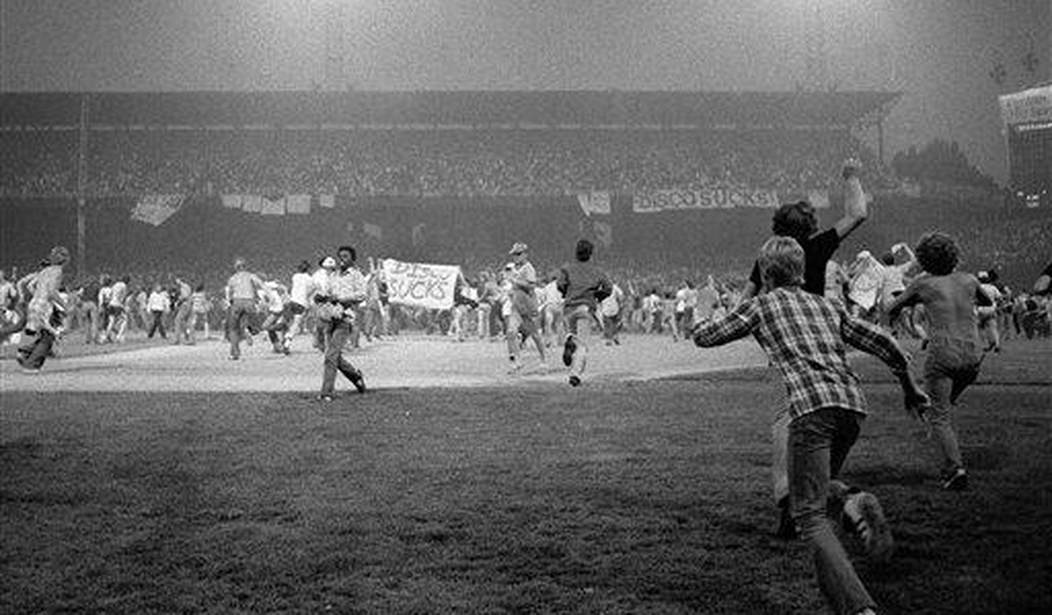July 12, 1979, is a date that lives in baseball infamy. It is also a turning point in modern music history. That the two converged on the ball field on the Southwest side of Chicago is strange indeed. When you think of landmarks in pop music, the now-demolished Comiskey Park, home of the Chicago White Sox, doesn't come quickly to mind.
But could the "happening" on that day give us a window into one of the strangest cultural oddities of our day, Trump Derangement Syndrome? You could define TDS as a disagreement or disapproval that clouds the speculative intellect to the point it leads a person's will to believe the worst and hate disproportionately.
It all began when a Rock DJ who hated disco music joined forces with the White Sox's promotions manager Mike Veeck, son of owner Bill Veeck. The Veecks were famous in baseball for oddball promotions. In the 1950s, baseball changed one of its rules to counteract a Bill Veeck stunt of sending a midget up in a major league game so pitchers couldn't strike him out.
When programmers gave DJ Steve Dahl a disco record to play at WLUP, he would put it on the turntable and run the needle across it to scratch it, making it no longer playable. His radio station then teamed up with the White Sox on a promotion campaign; they called it Disco Demolition Night. Admission to the ballpark would be only one dollar if you came with a disco record. The promoters would then put the records in a box and blow the box up on the field between games of this twi-night doubleheader.
Instead of the expected 12,000 additional fans, the game was sold out, and 20,000 more rushed the gates. Besides blowing a hole in the outfield with the planned detonation, mobs of rock fans flooded the field, throwing records everywhere and taking divots out of the field. It took a call to riot police to clear the field. Umpires eventually called the game because of damage to the playing field.
The revolt against disco had begun, and soon, other stations refused to play the music. The Bee Gees's career went into stall and forced a change of course in their music. Here is some of their music from Saturday Night Fever.
A few years later, one of America's greatest screenwriters, directors, and producers, Whit Stillman, produced "The Last Days of Disco," a film that the events at Comiskey Park indirectly triggered. Like most of Stillman's pictures, it is a film of manners. It was about young graduates trying to navigate love and life in New York City.
A disco similar to the famous Studio 54 is a hinge location in the film, and Stillman shot some scenes on location there. Studio 54 was a celebrity hangout in New York, and Donald Trump was a regular. Stillman later regretted the title because it hurt the box office. It was a movie about young people, not music. But what did strike Whitman about the music was the sheer hatred some people had for it. The anger it evoked was almost unprecedented in the arts.
Music genres come and go, but a cultural phenomenon that desired to kill a form of music rather than just dislike it fascinated Stillman.
While I'd bet that Stillman is hardly a fan of Trump, his insights into the anti-disco phenomenon point to a strange cultural divide. It was an anti-social movement that chose not to live and let live.
Compare the people on the field in Comiskey Park to Whitman's dance scene above. In which would you more likely find The Donald, as the tabloids called him back in those last days of disco? Probably not with those who were ready to break social norms in that anti-disco frenzy at Comiskey Park. What is that old saying? We are all now what we were at 16.










Join the conversation as a VIP Member